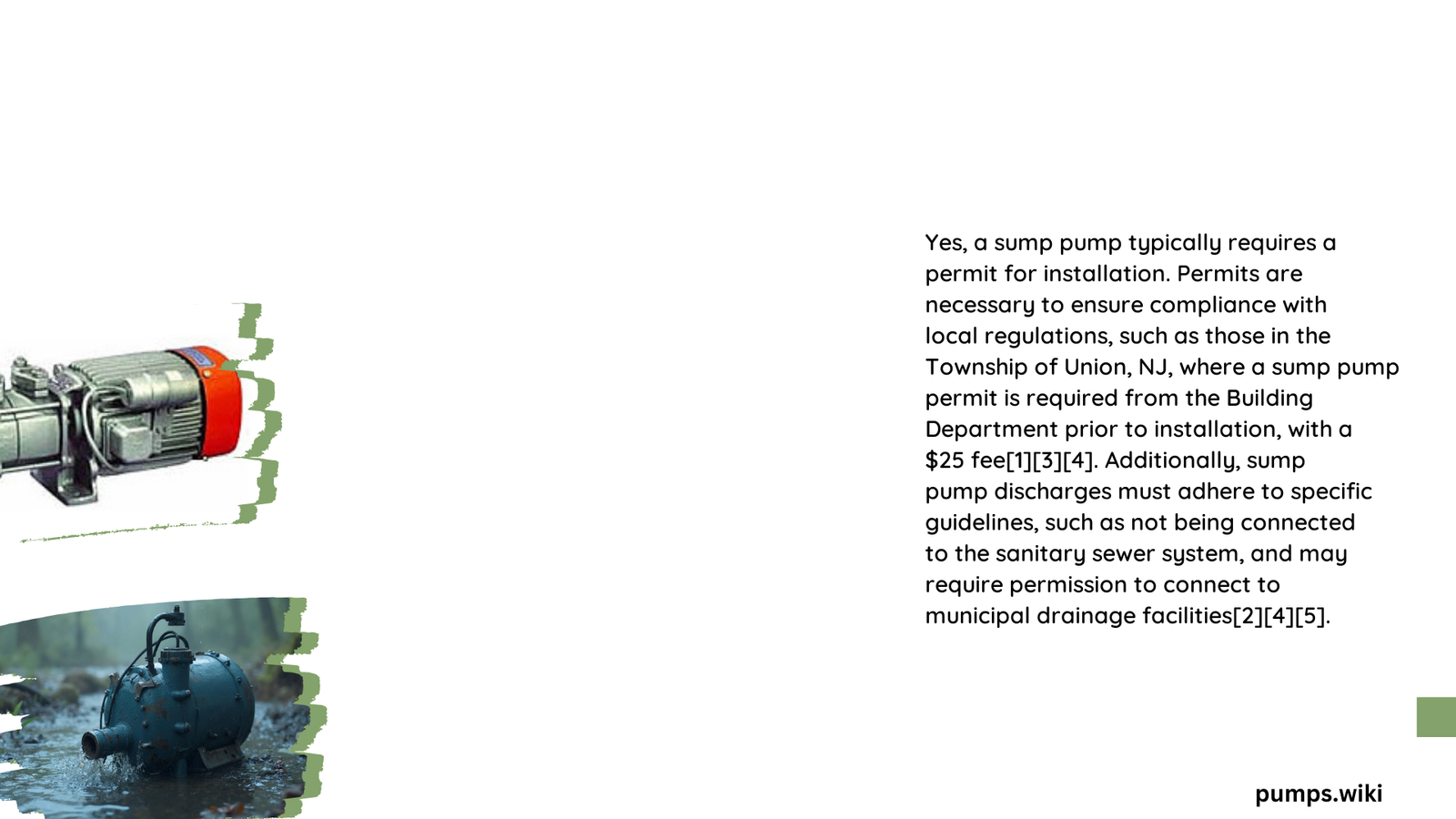Navigating the complexities of sump pump installation can be challenging for homeowners. While permit requirements vary by location, understanding local regulations is crucial to ensure compliance, avoid potential fines, and protect your property from water damage. This comprehensive guide will explore the nuanced landscape of sump pump permitting across different jurisdictions, helping you make informed decisions about your basement waterproofing project.
What Determines Sump Pump Permit Requirements?
Sump pump permit requirements are not universal and depend on several critical factors:
Are Local Building Codes Different for Sump Pump Installation?
Local building codes significantly influence permit requirements. Each municipality has unique regulations that homeowners must carefully navigate:
| Jurisdiction | Permit Requirement | Additional Considerations |
|---|---|---|
| Urban Areas | Often More Strict | Structural modifications may require permits |
| Rural Regions | Generally More Flexible | Fewer regulatory constraints |
| Suburban Zones | Moderate Regulations | Depends on specific local ordinances |
What Factors Trigger Permit Necessity?
Several key factors determine whether a sump pump installation requires a permit:
- Structural Modifications
- Foundation alterations
- Significant basement excavation
-
Electrical system changes
-
Drainage System Complexity
- New drainage infrastructure
- Connection to municipal systems
- Extensive underground work
How Do Professional Installations Impact Permit Requirements?
Professional sump pump installations often have different permit considerations:
- Licensed contractors typically understand local permit requirements
- Professional installations may include permit acquisition as part of service
- Some jurisdictions require certified professional installation for complex projects
Potential Consequences of Unpermitted Sump Pump Installation

Homeowners who bypass permit requirements might face significant risks:
- Financial Penalties
- Substantial municipal fines
- Potential retroactive permit fees
-
Mandatory corrective work
-
Insurance Complications
- Potential claim denials
- Reduced property insurance coverage
- Liability issues during property sales
What Documentation Should Homeowners Prepare?
Comprehensive documentation can streamline the permit process:
- Detailed project plans
- Professional installation diagrams
- Equipment specifications
- Contractor credentials
- Site survey information
Best Practices for Sump Pump Permit Compliance
To ensure smooth sump pump installation:
- Contact local building department
- Request specific permit requirements
- Obtain written confirmation of regulations
- Schedule necessary inspections
- Maintain comprehensive documentation
Technical Considerations Beyond Permits
While permits are essential, technical considerations are equally important:
- Proper discharge location
- Electrical code compliance
- Water table assessment
- Drainage system compatibility
- Pump capacity requirements
When Should Homeowners Seek Professional Guidance?
Professional consultation becomes crucial in these scenarios:
- Complex basement configurations
- Historic property modifications
- Challenging geological conditions
- Extensive waterproofing projects
Conclusion: Navigating Sump Pump Permit Landscape
Understanding sump pump permit requirements demands careful research and proactive communication with local authorities. While regulations vary, prioritizing compliance protects your property and ensures long-term water management success.
